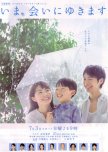- Português (Brasil)
- Русский
- English
- magyar / magyar nyelv
- Título original: 山花烂漫时
- Também conhecido como: Girls' School in the Mountains , Da Shan Li De Nü Xiao , 大山裡的女校
- Diretor: Fei Zhen Xiang
- Roteirista: Yuan Zi Dan, Ding Han
- Gêneros: Juventude, Drama
Onde assistir Da Shan Li De Nv Xiao
Subscription
Subscription (sub)
Elenco e Créditos
- Song JiaZhang Gui MeiPapel Principal
- Lancia LanGu YuPapel Secundário
- Du LanCai Gui ZhiPapel Secundário
- Zhao Run NanZhao Xiao LeiPapel Secundário
- Wang Zi WeiCai HongPapel Secundário
- Li Yun RuiChen ChenPapel Secundário
Resenhas

Best drama in 2024
I am sad almost nobody is watching the drama even though it is available in international platform. She and Her Girls is one of the best dramas I ever watched. It is really touching and heartwarming. You'll laugh alot but cry a bit too. Magnificent casts & acting, EXCELLENT SCRIPT, lovely music, beautiful sets, truly the drama that SAVES the 2024 cdramaland.I almost never rewatch drama but I rewatch this even when it had not finished yet. I love watching all the funny moments, which were a lot. The story never bored ne (except during some of the long singing lol) and it is always fresh in each episode.
I also applaud the way they include many issues from gender equality, economic inequality, body dysphoria, governance, bureaucracy, even dating and danger of Internet and stigma against art education, all are real life issues which makes this very relatable.
Esta resenha foi útil para você?

Esta resenha pode conter spoilers
Moving mountains, one muddy step at a time
‒Overview‒If you are wondering whether to watch 'She and Her Girls', hesitate no longer, queue up the first episode, and prepare to lose yourself in this captivating story. Even if this isn't your typical genre and the synopsis lack the usual fantasy or glamor, you will find a hidden gem whose unvarnished substance outshines any gilded tale. In this drama you will find a timeless, universal story about the dogged spirit of a headmaster and her equally tenacious girls, who are changing the lives of others and their own in the most impoverished and anguished of circumstances. Along the way, you will fall in love with the stellar acting, production, organic comedy, emotional moments, and most of all, the touching group of individuals who made the impossible, possible. For many viewers, not only will this be an excellent introduction into the world of serious, 'proper' CDramas, it may even secure a spot among the top dramas of 2024, if not all time.
‒Review (modest spoilers)‒
You are 14 years old, one of the top students of your class. You are hardworking, responsible, with a whole life ahead of you. What do you do as the high school years approaches? Attend fun summer camps, hang out with friends, engage in hobbies and sports, or party and do teenager things? In Gu Yu's case, you drop out of school, work from dawn till dusk until your face and clothes is creased with mud, raise your sibling, pigs, and your pig of a drunkard dad, and prepare to sell the rest of your life for the bride-dowry of 30,000RMB because that's the brightest path in your future.
Such is the life of girls in the villages of Huaping, a remote, impoverished region in China's Southwest. Secluded from the cities by barricades of mountains and forest, most residents of Huaping have never been outside of their villages. For all they know, the only thing beyond the mountains are just more mountains. Modern facilities appear decades away, the same for modern values. Girls are often married off at age of 14, become mothers not long after, and spend their life not much different from the livestock they raise. If they are fortunate, they will have married a decent man, who will toil alongside her, and the cycle repeats. And if they are not fortunate, the husband will be abusive in all sorts of pre-modern ways, and the cycle repeats. To change the lives of these girls and villages is a herculean task of moving the mountains of ragged poverty, stultified structures, and ingrained mindset. Behind each mountain, are only more mountains.
And that's the crusade of Zhang Guimei, a no-nonsense teacher transplanted from the Northeast to Huaping. She had lived in Huaping for too long, and seen too many girls cut their education and future short. Too many parents pull their girls from school at the end of their 9 year compulsory education, and sometimes before then. If a family had some meager resources, they would use it for the education or dowry of their sons. By tradition, a girl's role was to be a wife and mother, the sooner the better, and education only got in the way. Zhang Guimei knew that the only way to give them a fighting chance was to open up a completely free high school for the girls. One that offered not only free tuition, but also meals, board, and living expenses. One that would not only have the girls graduate high school, but also prepare them to succeed in China's notoriously cutthroat Gaokao college entrance exam, so that they could finally scale the mountains and see the world beyond.
With unnerving stubbornness, she begins to move mountains. She hounds dropout students, cajoles skeptical parents, begs and coerces local officials just to get the school constructed. Then came more mountains: attracting teachers to such a grueling and hopeless job, keeping the school running as they scrummage for funds, leading the group of overworked, burned out teachers. And moving the biggest mountain of them all‒marshalling the under-schooled students through the long march to Gaokao, while they are outgunned in every dimension and frequently ambushed by family turmoil. But as she moved mountains, the minds and hearts of others begin to move as well. Soon, she would be joined by a tenacious group of teachers, officials, parents, and most importantly, the 100 precious souls in the initial class of Huaping Girls School. Each battling their own struggles, each a heroic inspiration. As they stumble through the muddy hills of Huaping, literally and figuratively, mountains are slowly moved, one after another.
She and Her Girls is a triumph of the individual spirit melded into an even stronger collective. The remarkable story on-screen is mirrored by the collective performance of a superb cast, for whom many recognitions and accolades await. This is the kind of drama where you are convinced the villagers walked onto the set and doubt how any of them could be actors. There are too many excellent performances to list, so I will only highlight a few notable ones. First and foremost, Song Jia (宋佳) as Zhang Guimei (张桂梅) seamlessly embodied the mannerism and personality of the real-life Zhang Guimei‒one who is stern, quick-tongued, stubborn, but also profoundly warm-hearted and devoted. The other best performance no doubt goes to Lan Xiya (兰熙雅) as Gu Yu (谷雨). Portraying the 15yro Gu Yu, the 25 yro Lan Xiya's performance was simply flawless. This is an extremely challenging role for any actress to play, and I'm still astounded how she pulled it off. The two government officials‒Zhou Shanqun and Ma Yongqiang‒played by Nie Yuan and Jiang Chao were predictably excellent in portraying the aura and mannerism of do-good officials who are nevertheless balancing competing demands in the system. Among the teachers, I was most impressed by Chen Sihai, the school administrator played by Zhang Tianyang, and Wei Tingyun played by Huang Miyi, who might be mistaken for a Zhou Xun doppleganger as she brings the soothing etherealness of the famed actress.
The production, writing, cinematography, editing, and music complete the all-round excellence. Each episode seamlessly balances laughter, emotions, and a gritty, realistic window into the triumphs and travails of the characters and society. There was no lull or filler to be found and I binged through 23 episodes in just a day and half (granted I watch all shows on 2X speed nowadays). As someone who would rate most 8.5+ MDL shows below 7, my overall rating is 8.6 (adjusted to 9.5 for MDL). This is most certainly a top 5 CDrama in 2024, and one of the best school, youth, rural China dramas of all time. For reference, the typically stingy Douban gave this a 9.4 on over 100k votes, likely crowning this as the 2024 rating champ. (This concludes Part 1 of my review. I hope to continue with a part 2, that goes into my very picky critique of the show and some relevant cultural observations.)
--Category Ratings--
- Overall - 8.6
- Plot / Execution - 8.5
- Theme / Concept / Impact - 9
- Acting - 9.2
- Visuals - 8.5
- Audio / Music - 8.5 (bonus for local dialect and undubbed recording)
- Rewatch - 8.5
- Accessibility - 7.5
- Subtitle quality - 8 (some platforms are better than others)
Esta resenha foi útil para você?
Recomendações
There have been no recommendations submitted. Be the first and add one.











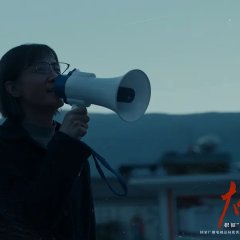
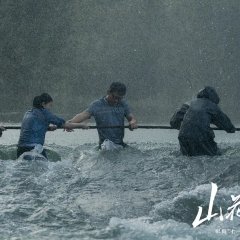
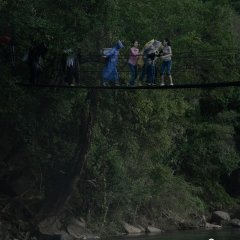
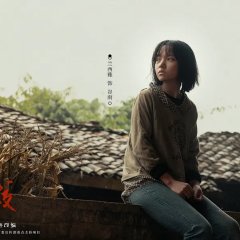
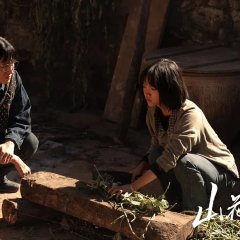
 1
1









